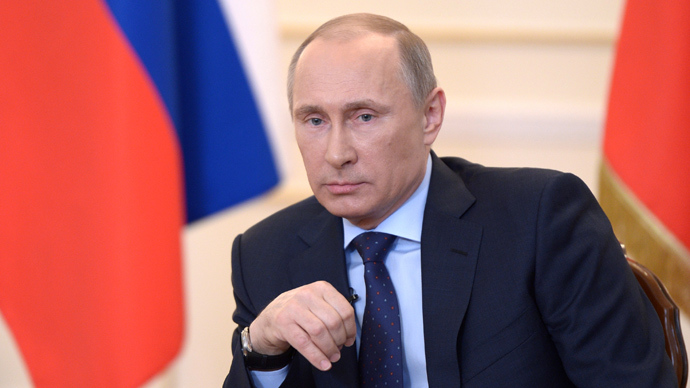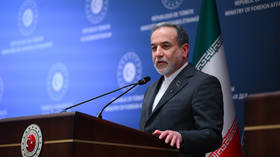President Putin moves towards reconciliation with West over Ukraine

Russia’s president seems to have gone some way towards reconciling the different versions of the Ukrainian conflict, decreasing the immediate risks of an armed conflict, Mary Dejevsky, chief editorial writer and a columnist at The Independent, told RT.
RT:Since the beginning of the unrest in Kiev in November, the West was involved quite extensively, also imposing sanctions against the legitimate government. Now they're calling for sanctions against Russia for doing essentially the same thing - getting involved. What’s your take on this?
Mary Dejevsky: I think that in the view of Western public opinion, Russia has looked as though it exceeded what was allowed under international law and international treaties, so the West feels entitled to punish Russia for doing that and sanctions is the easiest way to do that.
RT:Do you think the sanctions against Russia could be really imposed?
MD: It depends on what would happen next. The nature of the sanctions that people are talking about is really not particularly stringent. I know there was a leak from Downing Street yesterday when an official was seen going to a meeting with his papers, which said, "OK, we may be interested in sanctions but not trade sanctions." And the Americans have been talking about sanctions, but again, directed against individuals and bank accounts, against maybe property and commercial interests held in the West by individuals, but not apparently nationally.
RT:Do you think this propaganda war over
the Ukrainian crisis is justified?
MD: When you look at it from the Western side,
what strikes me is that there are two completely different
versions of events - one of them is believed by the Russian side
and presumably by the Russian speakers in Ukraine, and the other
is believed by a lot of Western television viewers and people who
watch what is going on from this side. The Western version is
that Yanukovich opened fire on his own people, that the deaths in
Kiev are his responsibility, that the Russians exceeded any sort
of mandate they might have had by bringing reinforcements into
Crimea and sounding as though they might bring Russian troops
into the Eastern Ukraine under the pretext of protecting Russian
speakers in that region. I know that the view from Russia is very
different, that says that there is a real threat to Russian
speakers in Ukraine, and that the composition of the crowds in
Kiev who overthrew Yanukovich was made up largely of far-right
and Nazi-sympathizing elements. It is seemed very different in
the West.
RT:Who benefits from the media aggravating the situation?
MD: At the moment it looks as though there were extreme opinions on the both sides… But I've just been listening to President Putin and it's interesting to me that he goes some way towards reconciling the different versions, and to me it sounds as though the immediate risks are much less than they were, let's say an hour ago. of armed conflict over Ukraine.
The statements, views and opinions expressed in this column are solely those of the author and do not necessarily represent those of RT.












